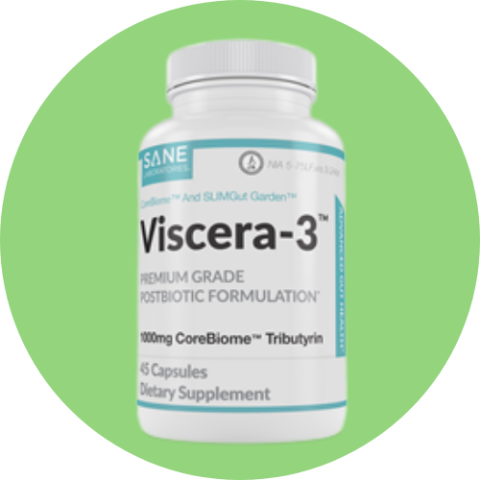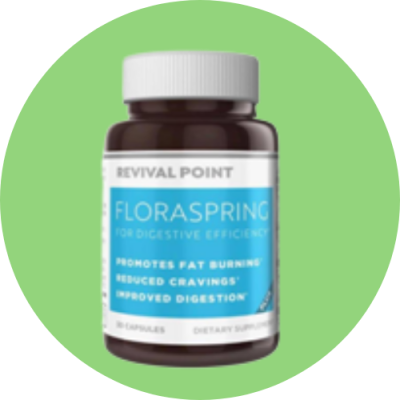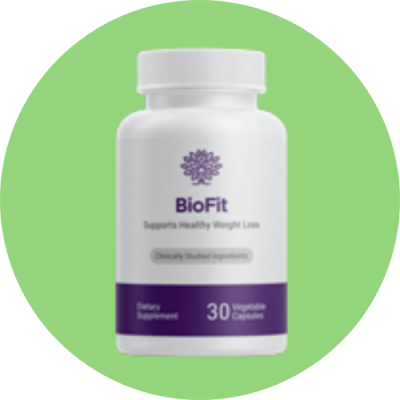The Complete Guide to Gut Cleanse 2024
By Vanessa Richards
January 10, 2024 • Fact checked by Dumb Little Man

When asked about the most important organ in the body, most people mention the brain, heart, or even liver. Very few remember a (mostly) silent organ that affects our health and well-being much more than we realize…the gut.
Your digestive system does much more than just digest food, absorb nutrients, and get rid of waste. It’s also a vital part of the immune system and helps the body eliminate toxins as well.
That’s why it’s important to take your digestive health seriously and support your gut bacteria as much as possible. One of the most popular ways of achieving this is through a gut cleanse.
In this article, we’ll break down the meaning of a gut cleanse and the different types. We’ll also explain the benefits and dangers, as well as answer some questions concerning the practice.
What is a Gut Cleanse?

A gut cleanse (also called a colon cleanse) is a popular practice within the field of alternative medicine. It involves various methods of improving your overall health by optimizing your colon health.
Though there are several ways of performing a colon cleanse, most individuals prefer “natural” methods because they believe these are safer and more effective. The techniques used during a natural colon cleanse differ widely and may include the use of enemas, detox diets, colonic irrigation, herbal teas, taking substances that improve gut microbiota, and so on.
Most of these natural colon cleansing techniques are harmless and may actually be good for your overall health when done correctly. However, some are quite dangerous and could introduce harmful substances into your body, as well as disrupt the natural human gut microbiome filled with good bacteria. Therefore, it’s important to know how the different forms of colon cleansing work, their benefits, and the potential dangers they pose as well.
Theories Behind Using Gut Cleanse to Improve Digestive Health
There are several theories behind colon cleansing. One of the more popular theories involves a process known as autointoxication. The theory of autointoxication suggests that the waste within our digestive system produces harmful toxins which leak into our bloodstream when not evacuated quickly enough and can cause all sorts of adverse health conditions.
This process was originally believed to be responsible for chronic fatigue, weight gain, bloating, constipation, colon cancer, and so on. That is why proponents of the autointoxication theory recommended frequent evacuation of the contents of the lower bowel through various methods.
The theory has been long been disproven within the medical field due to several important facts. They include:
- The digestive tract is lined by a layer of mucus membrane which prevents most unwanted substances from leaving the gut.
- Blood from the gut flows into the liver, which detoxifies most harmful substances.
- Good gut bacteria also help in the digestion and detoxification of food. Some colon cleansing techniques disrupt the gut microbiome and may encourage the growth of bad bacteria.
- The lining of the gut regenerates constantly, preventing harmful toxins from building up within the digestive tract.
Why Do People Get a Gut Cleanse?
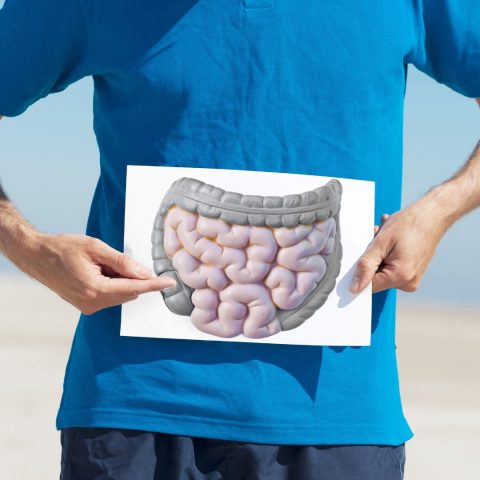
Even though the theory of autointoxication has been widely refuted and as such has no recognized health benefits, there are several other reasons people get colon cleanses.
These include:
- Weight loss
- Constipation
- Irritable bowel syndrome
- Chronic fatigue
- Mood swings
- Other digestive tract symptoms like bloating, heartburn, reflux, and so on.
While there is little medical evidence supporting the use of most colon cleansing techniques in many of these health conditions, there are a few situations where certain gut cleansing techniques may be helpful.
For example, enemas and laxatives could help deal with constipation when done safely. Probiotics are great for supporting healthy gut bacteria and could help individuals with chronic diarrhea or who have an overgrowth of bad bacteria within their digestive system.
Also, certain diets are quite effective for individuals with constipation, help with weight loss, and even reduce the symptoms of chronic diseases like diabetes, hypertension, and irritable bowel syndrome.
Potential Side Effects of Gut Cleansing
Most colon cleanses are relatively harmless to healthy people when done correctly. However, some individuals may be more likely to have adverse reactions to these methods. These include individuals with:
- Heart disease
- High blood pressure
- Renal disease
- Other colon conditions such as ulcerative colitis, Crohn’s disease, etc
- Individuals with health conditions that make them sensitive to rapid electrolyte changes
Colon cleanses can also cause side effects in healthy individuals when performed with harmful substances or done excessively. Please contact a medical professional immediately if you notice any adverse reactions such as:
- Pain within your rectum or colon
- Passage of bloody stool
- Fainting spells or dizziness
- Worsening headaches
- Palpitations
- Worsening digestive symptoms such as bloating, diarrhea, vomiting, constipation, cramping, etc
- Weakness
- Muscle cramps or twitching
These may all be signs of potentially serious side effects.
How To Perform a Gut Cleanse
There are dozens of different gut cleansing techniques which are routinely carried out today. Listed below are a few popular methods which are commonly used to perform natural colon cleanses.
Saltwater Flush
A saltwater flush is a form of colon cleansing which is quite popular among individuals who have constipation. It involves drinking a mixture of warm water and two teaspoons of non-iodized salt first thing in the morning before a meal or in the evening on an empty stomach.
The mixture is said to have a laxative effect and helps empty the large intestine within a short period. However, this method may be quite dangerous for individuals with heart disease, high blood pressure, kidney disease, and so on because it can lead to dangerous changes in your electrolyte levels. Therefore, speak to a health professional before attempting a saltwater flush.
Colonic Hydrotherapy
Colonic hydrotherapy (also known as colonic irrigation) is a form of alternative medicine which involves the injection of a fluid into the lower parts of the large intestine through the rectum to facilitate the passage of its contents. This is because proponents of this technique believe that the accumulation of fecal matter in the large intestine leads to autointoxication.
This is similar to enemas, a medical procedure performed by a healthcare professional to treat severe cases of constipation or before certain medical procedures. The fluid used for enemas is usually warm water with very mild soap and when done correctly most enemas are perfectly harmless.
However, many different types of solutions used for colonic irrigation have sprung up over the years. These solutions contain potentially corrosive and harmful substances like laxative herbs, lemon juice, coffee, salt water, apple cider vinegar, and so on. Therefore, speak with a licensed healthcare professional before attempting any form of colonic irrigation.
Detox Diets
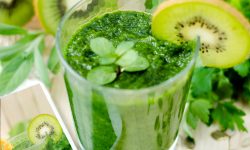
There are dozens of special “detox diets” which have been proposed to improve gut health. A few of these diets are helpful and have been found to improve gut health and are protective against colon cancer. These include eating probiotic-rich foods such as fermented food, adding high fiber foods to your diet, staying well hydrated, taking fish oil capsules, and avoiding processed foods.
However, within this advice, some dangerous dietary trends have also emerged. This includes taking large quantities of herbal teas with laxative effects, juice or smoothie fasts, essential nutrient restrictive diets, and so on.
There are several issues with such diets, which include:
- The long-term use of laxatives can lead to dehydration and other issues
- They typically restrict you from taking in a lot of essential nutrients
- They are unsustainable and this frequent failure can lead to eating disorders such as binge eating, anorexia, purging, and so on
- Drinking large amounts of water can lead to a life-threatening condition known as water intoxication
- They may disrupt your gut microbiome, leading to issues such as bloating, constipation, diarrhea, and nausea
Digestive Enzyme Supplements
Throughout your digestive tract, your body secretes special substances known as enzymes which help us digest the food we eat. As we grow older our bodies secrete less of these enzymes.
Leading to symptoms like bloating, cramping, diarrhea, nausea, and so on. Certain individuals also have health conditions which means they secrete less of these enzymes than normal, for example, lactose intolerance.
Some wellness professionals advocate for the use of over-the-counter digestive enzyme supplements which are said to contain natural, plant-based digestive enzymes. However, it is important to remember that most of these supplements are not FDA regulated.
And therefore their contents, effectiveness, potential side effects, and safety profile is not well understood.
Gut Supplements
Gut supplements is a general term used to refer to dietary supplements that improve colon health and boost the gut immune system. Among all the methods of promoting gut health, these supplements are considered one of the safest methods.
Generally, they include four broad classes – prebiotics, probiotics, postbiotics, and synbiotics.
Prebiotics
Prebiotics are food supplements that act as a food source for gut microbiota. These are typically high-fiber foods and supplements.
Probiotics
Probiotics on the other hand are beneficial microorganisms that are introduced into the gut. These organisms help with digestion, they boost the immune system of the gut and they prevent the growth of harmful microbes within the digestive tract.
Postbiotics
These are beneficial bioactive molecules that are left behind after the body has fully digested prebiotic and postbiotic substances.
Synbiotics
Synbiotics are products made from a combination of prebiotics and probiotics.
>>Related Article: 7 Best Probiotic Supplement for Healthy Digestion • Top Gut Health Support of 2024
4 Gut Supplements to Support Your Gut Bacteria
| Product | Key Feature |
|---|---|
| Top Consumer's Choice | |
| Best Prebiotic Fiber Blend | |
| Best Value Supplement | |
| Best for Probiotic Weight Loss |
Let’s take a look at some popular gut supplements which you can use to boost your digestive health.
1. Top Consumer’s Choice: Viscera-3
Viscera-3 by Sane is an amazing all-natural postbiotic supplement designed and produced by Sane Laboratories. It contains a mixture of powerful active ingredients which have shown significant potential in improving gut health. Some of the key ingredients include grape seed extract, CoreBiome Tributyrin, chromium, magnesium, and pomegranate.
The product is great for bloating, gas, and cramping, and has also been said to be a great adjunct for your weight loss journey. The secret to this product is the CoreBiome Tributyrin, a patented super-nutrient that increases water absorption, facilitates digestion, and promotes healing of the mucosal lining of the gut.
Since Viscera-3 is a postbiotic it offers the immediate benefits of both prebiotics and probiotics, especially for those who may lack sufficient quantities of helpful gut bacteria. It also contains magnesium, which is very important for promoting gut health and motility.
Shop at Viscera-3 Official Website
Full Article : Viscera 3 Reviews: Does it Really Work?
2. Best Prebiotic Fiber Blend: SynoGut
SynoGut is an effective synbiotic supplement that works by providing the gut with beneficial bacteria as well as the materials these microorganisms require to survive. It is great for colitis, bloating, constipation, and other gut symptoms.
The active ingredients within the formulation include Aloe Vera, Apple pectin, Lactobacillus Acidophilus, Prune, Black walnut, Bentonite clay, and Glucomannan. The supplement is most effective when combined with a gut-friendly diet.
Shop at Synogut Official Website
Full Article: SynoGut Reviews: Does it Really Work?
3. Best Value Supplement: FloraSpring
FloraSpring is a juggernaut within the world of probiotics and packs several strains of helpful gut bacteria in one product. These beneficial microorganisms include Lactobacillus rhamnosus, Lactobacillus fermentum, Lactobacillus gasseri, Bifidobacterium breve, and Lactobacillus acidophilus.
Each capsule contains over 25 billion colony-forming units, which is a very powerful dose. It’s great for digestive tract symptoms, as well as a powerful weight-loss aid.
Shop at FloraSpring Official Website
Full Article : FloraSpring Probiotic Review: Does it Really Work for Weight Loss?
4. Best for Probiotic Weight Loss: Biofit
Biofit is another great synbiotic supplement that combines the advantages of both a prebiotic and probiotic. It contains seven helpful microorganisms which are Bacillus subtilis, Lactobacillus casei, Lactobacillus rhamnosus, Bifidobacterium breve, Lactobacillus acidophilus, Bifidobacterium longum, and Lactobacillus plantarum.
The product also contains a mixture of prebiotic components like short-chain fatty acids and vegetable cellulose. It’s a great weight loss companion, as well as a booster for digestive health and your immune system.
Shop at Biofit Official Website
Full Article: BioFit Reviews: Does it Really Work?
Conclusion
Colon cleanses are a popular method of promoting your digestive health through the use of various techniques. These may involve special diets, procedures, and even pills.
Generally speaking, the safest and most data-backed method of improving your gut health is through eating a balanced diet. This means a diet filled with healthy fats, proteins, carbs, and plenty of water.
Gut supplements such as probiotics and prebiotics are also a very effective way of promoting gut health. When it comes to gut supplements we recommend Viscera-3 by Sane as a top choice that is safe for everyone.
Viscera-3 is a postbiotic so it offers you the many health benefits of both probiotic and prebiotic molecules without the need for further digestion. It is safe for virtually everyone, completely natural, effective against a wide range of health complaints, and promotes weight loss.
Click here to get Viscera-3 at a Discounted Price
Gut Cleanse FAQs
How often should you perform a gut cleanse?
This depends on the type of gut cleanse being performed. Colonic hydrotherapy can be performed once a month, probiotics are daily supplements, and a healthy diet is a life-long journey.
Do gut cleanses help with weight loss?
Gut cleanses which promote healthy dietary measures are a great way to aid you on your weight loss journey.
Is there a gut cleansing diet?
It’s possible to undergo a dietary gut cleanse. Simply eat a high-fiber diet, stay hydrated, avoid red meats, quit smoking, take fermented foods, cut down on alcohol, and cut down on processed foods.
Vanessa Richards
Vanessa is a mom of 3 lovely children and a software geek. Outside of her career as a health and wellness instructor. She enjoys writing and researching on topics such as finance, software, health and culinary.

